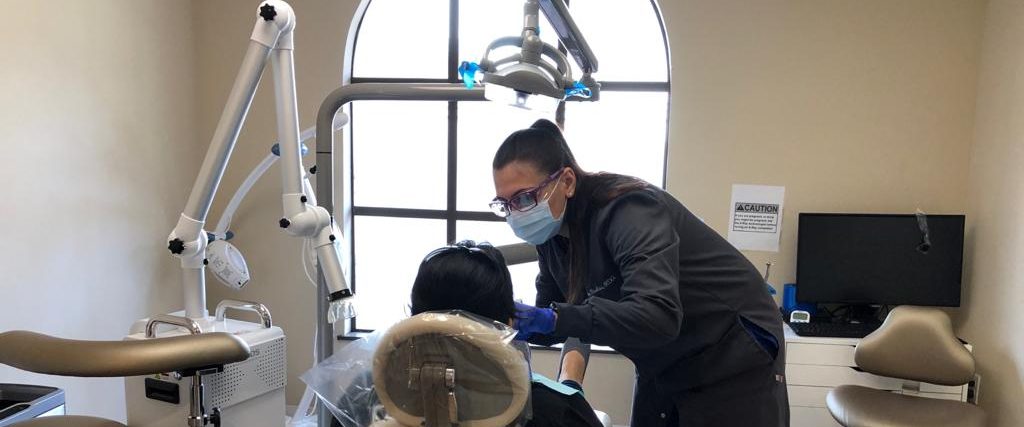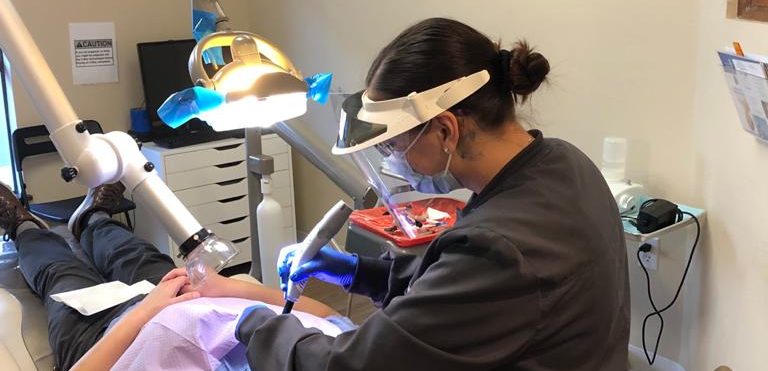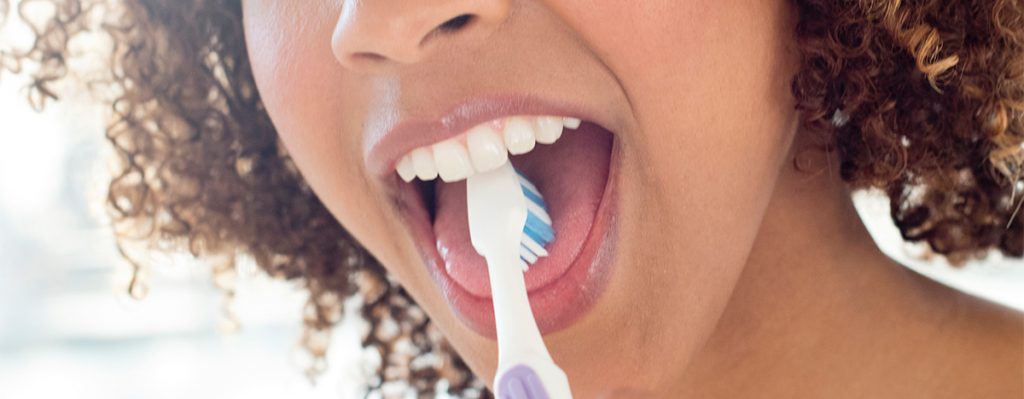Date : 02/08/2020
The baby’s health and well-being are the main priority of any mother-to-be. There are so many rules to follow during pregnancy. She'll have to make changes to her diet and lifestyle to ensure a healthy and safe pregnancy. But with so much focus on the baby's health, it's easy to neglect our own. Between hormonal changes and the potential for neglect, many women find themselves suffering from pregnancy gingivitis.
Pregnant women are often bombarded with advice about the dos and don’ts of pregnancy. Every trimester, they commonly undergo tests like ultrasounds, blood sugar levels, and thyroid function.
Pregnancy gingivitis, an oral health problem, can rear its ugly head anytime from the second to eighth month of pregnancy.
What Is Pregnancy Gingivitis
There's so much reading material available for pregnant women and would-be parents. Most of it is aimed at helping them understand how to take care of the mother’s and the baby’s health.
You'll receive lists of what to avoid. You'll learn what health risks may be involved with pregnancy and how to avoid them. You may even get a list of health issues you may be facing and how to prevent or treat them.
Pregnant women are proactive when it comes to seeing their obstetrician regularly during pregnancy. But many women don't think about going to the dentist during the prenatal period.
Some women even actively avoid it, thinking that they shouldn't visit their dentist during pregnancy.
A visit to the dentist often includes X-rays. Sometimes, they'll also include tooth extractions or root canals. You may normally get your teeth clean or have a cavity filled. Although many of these procedures aren't advisable during pregnancy, it's not necessary to ignore oral hygiene completely.
Another reason
There's another reason women may avoid dentist visits during pregnancy. Often, there just isn't enough attention paid to the importance of good oral health for the mother and baby.
And many women aren't aware of the increased risk of pregnancy gingivitis or some of the health issues it can cause. They may not know how much impact their oral care has on their health or the health of their unborn child.
According to a report by the American College of Obstetricians and Gynecologists (ACOG), pregnancy gingivitis and periodontitis affect almost 40 percent of women during pregnancy. Some studies even say that 60 to 70 percent of women suffer from oral health problems during pregnancy.
That's a huge number.
Pregnancy gingivitis refers to swelling, pain, and bleeding of the gums during pregnancy. This condition stems from the high levels of the hormone progesterone. The rise in progesterone makes gums vulnerable to bacterial plaque development, which can damage the gums and cause a lot of pain.
Symptoms
Some of the common symptoms of pregnancy gingivitis are:
- Swollen gums
- Bleeding gums
- Receding gums
- Benign tumors in the mouth
- Loose teeth
Causes
As stated, levels of the hormone progesterone increase during pregnancy. And this rise results in an exaggerated response to the plaque already present in the mouth.
High levels of bacteria in and around the teeth can even cause loss of bone. This often results in tooth decay or tooth loss.
And if left unchecked, pregnancy gingivitis can lead to periodontal disease in the mother, which is also harmful to the baby’s health.
Pregnancy Gingivitis Risks
When you don't visit the dentist during pregnancy, you put yourself at risk for gingivitis. And it's not only you, but your baby as well.
Risk for the mother
Pregnancy gingivitis is an unpleasant and painful condition for the mother. If a woman is prone to periodontal disease already, she's more likely to suffer from gingivitis during pregnancy too.
Swollen and bleeding gums can really become a problem while eating meals or brushing teeth. Sometimes, benign tumors in the mouth can occur. These generally go away naturally after delivery, but they can be painful.
Luckily, your dentist can remove them before the baby's birth if they become so uncomfortable that they affect your ability to sleep or eat.
If you don't treat pregnancy gingivitis in a timely fashion, it can grow into periodontal disease. This disease infects the structures around the teeth, like the gums, ligaments, and bone.
Your gums hold your teeth in place. So, any gum disease can increase your risk of losing your teeth, too.
Risk for the baby from pregnancy gingivitis
Doctors say that babies whose mothers have been suffering from pregnancy gingivitis and periodontitis are at risk of preterm birth.
You see, our immune system has two sets of proteins known as cytokines. These regulate the body’s reaction to inflammation. There are pro-inflammatory and anti-inflammatory cytokines.
When a woman has periodontal disease, it causes an imbalance in these proteins. That results in inflammation in the body and can induce preterm labor.
Preterm labor can result in health problems like respiratory, loss of vision or hearing, and digestive issues in your child.
Your baby may also be born underweight, which can cause developmental problems as well as poor immunity. According to the Centers for Disease Control (CDC), low birth weight in babies can cause delayed motor skills, poor social growth, and even learning disabilities in the long run.
In the United States, about seven percent of children are born with low birth weight. In extreme cases, this can even result in infant mortality.
5 Ways to Avoid Pregnancy Gingivitis
All of this may seem overwhelming, given everything you have to think about while you're pregnant, but don't worry. There are ways you can avoid pregnancy gingivitis.
Prevention
The best way to avoid the risks that come with pregnancy gingivitis is to prevent it. You may have to modify your daily dental care routine.
You should also continue your normal schedule for dental appointments, including regular cleanings and checkups. And some minor changes in your diet can also help promote healthy gums and teeth.
1. Brush and floss
Whether you are pregnant or not, make brushing and flossing a daily activity, more so if you are pregnant. Brush your teeth twice a day (morning and night) patiently for two to three whole minutes.
Make sure that you reach all the nooks and crannies where food particles can get stuck.
Rinsing your mouth after each meal or snack can also help lower bacteria in the mouth. If you're comfortable with them, use a tongue cleaner too. Flossing helps clean the gaps between teeth as well.
2. See your dentist regularly
Schedule a cleaning appointment every six months. Most of us don't go to the dentist unless we have a problem. But regular checkups and cleanings will allow your dentist to spot any infections and cavities early on so that they can be treated immediately.
Most importantly, don't avoid going to the dentist during pregnancy. If absolutely necessary, x-rays can be done during pregnancy.
Digital x-rays today emit a lesser amount of radiation as compared to the ones many years ago. Plus, dentists give you an abdominal shield and thyroid collar for the safety of the baby.
3. Eat a healthy diet
It can be difficult to follow a healthy diet during pregnancy due to morning sickness and food cravings. However, try to eat a wholesome diet that provides good nutrition.
Eat fruits, vegetables, and dairy products. Also, choose meals that are high in protein, calcium, phosphorus, and vitamins A, C, and D.
In addition, avoid eating sweet, fried, and sticky foods. Also, refrain from eating foods with high amounts of sugar or salt that can spoil your teeth.
And choose water over carbonated drinks. Such a diet will not only ensure good teeth and gums, but it will also improve your overall health.
4. Gargle with sea salt
Sea salt is effective in reducing gum inflammation. If you feel tenderness or swelling in your gums, add a teaspoon of sea salt to a cup of warm water. Rinse your mouth well with this liquid and spit it out. Do not swallow.
5. Rinse well
Rinsing with a mouthwash kills the bacteria in your mouth and can help fight bad breath. You can opt for a mouthwash without alcohol in it if you prefer. Rinsing your mouth can also help clean the remains of any food from your teeth and gums.
Treatment
Most women are at risk of suffering from pregnancy gingivitis. In spite of taking precautions, you may start to show symptoms of the disease.
In this case, seek immediate treatment to avoid any dental emergencies that may not be treatable until after delivery.
That said, emergencies will have to be treated immediately. But elective surgeries can wait until after delivery.
Good oral health care gives you the freedom to make that choice rather than rushing to the dentist with an infection. Here are some forms of treatment:
1) Oral antibiotics
Your dentist can prescribe medication to combat bacterial infections in the mouth when they are just beginning.
2) Mouthwashes
Certain medicated mouthwashes are also used to treat pregnancy gingivitis and other gum diseases. Always remember that you should never swallow any mouthwash or toothpaste.
3) Change your oral hygiene products
If you are seeing symptoms of pregnancy gingivitis, you may want to switch your toothbrush and toothpaste.
Pregnant women may find they suddenly dislike certain tastes and smells. So remember that you can change your toothpaste and mouthwash to a flavor you are comfortable with.
Children's toothpaste flavors, such as a fruit flavor, are usually milder than those for adults.
Choose a toothpaste with fluoride in it as well as anti-plaque properties. Use a toothbrush with soft bristles if you have swollen or bleeding gums.
4) Inform your dentist about current medication and allergies
Pregnant women often receive prescriptions for nutritional supplements like vitamins, folic acid, iron, or calcium. You may also be taking medicines for other health conditions.
Make sure you inform your dentist of any medication you're taking to avoid any drug interactions or reactions with medicines they might prescribe.
Your dentist might modify any dental treatment for pregnancy gingivitis depending on other health problems or medications you're taking.
Keep Your Gums Healthy
Taking extra care of your teeth and gums during pregnancy is critical to ensure a healthy, full-term pregnancy. So, don't skip your dentist visits during the second and third trimester.
A good oral hygiene routine will help prevent pregnancy gingivitis as well as any other related problems that could become complicated or painful. And remember, the team members at Your Caring Dentist are here to help you through, so reach out!




